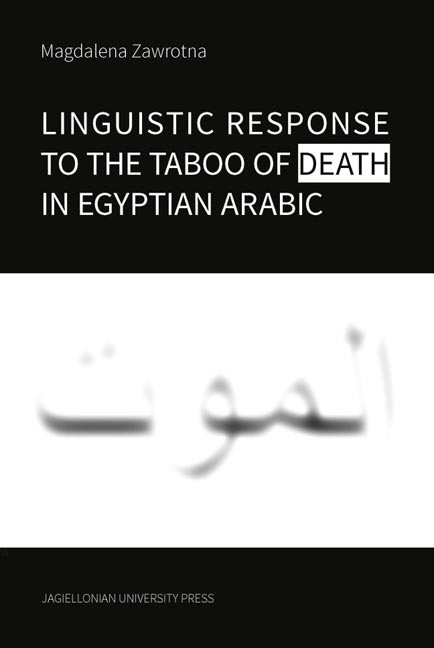Book contents
- Frontmatter
- Contents
- 1 Transcription system
- 2 Introduction
- 3 What is formulaicity?
- 4 Material
- 5 State of research
- 6 Structural notes
- 7 Qualitative analysis of death announcements, comments containing condolences and their responses
- 8 Recapitulation of the analysed material
- 9 Death and the agency of God
- 10 The taboo of death
- 11 Summary
- 12 Questions for further exploration
- Bibliography
- Miscellaneous Endmatter
11 - Summary
Published online by Cambridge University Press: 14 October 2023
- Frontmatter
- Contents
- 1 Transcription system
- 2 Introduction
- 3 What is formulaicity?
- 4 Material
- 5 State of research
- 6 Structural notes
- 7 Qualitative analysis of death announcements, comments containing condolences and their responses
- 8 Recapitulation of the analysed material
- 9 Death and the agency of God
- 10 The taboo of death
- 11 Summary
- 12 Questions for further exploration
- Bibliography
- Miscellaneous Endmatter
Summary
In this book the analysis of utterances sent over Facebook on the occasion of death was presented. The analysis of the material brings us to the conclusion that death in Egyptian society is a phenomenon dealt with indirectly; the picture is mediated by religion and beliefs. When responding to an announcement about someone’s death, Egyptians most often use blessings. They ask God to provide the mourner with patience and to grant the deceased a place in heaven. The solace of blessings is based on faith in the power of divine grace (baraka).
Baraka ‘divine grace’ is considered to operate in the life of Muslims at every moment and in all their endeavours. The transmission of baraka is one of the basic rituals of everyday polite exchange in Arab culture. According to Hamady (1960: 77–78) conveying blessing is a regular part of a broad complex of ritual greetings exchanged during visits; this involves requests addressed to God for the interlocutor’s health, long living and well-being: “God bless you”, “God multiply those who resemble you”, “God recompense you” (for thanks) are some examples of such expressions (ibid.). God is a constant agent in human life. His omnipresence is attested and referred to even in the most mundane activities of daily life. God is regarded as a source of power (quwwa, ḥawl). It is believed that all past, current and future human activity is carried out purely by the power of the divine that is granted to people, hence the expression: rabbina ʾaddarni ‘God gave me the power [to do something]’ A person often refers to God while asking for his active participation in their life. Daily interaction includes a request for blessing at every opportunity, recourse to God in moments of horror and danger, and sometimes requests for misery to befall enemies, e.g., curse.
In this book, a response to the taboo of death was studied based on the CMC data gathered from Facebook. A randomly selected group of 20 death announcements, 857 comments and 220 turns of dialogues were analysed in terms of their formulaicity. Additionally, the group of comments was also examined quantitively to provide a general structural pattern of response to death announcements on Facebook.
- Type
- Chapter
- Information
- Linguistic Response to the Taboo of Death in Egyptian Arabic , pp. 141 - 144Publisher: Jagiellonian University PressPrint publication year: 2021



